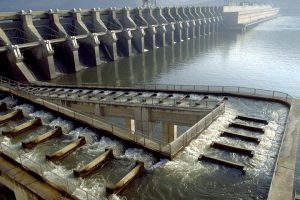9 item(s) were returned.
Director, Market Development & Business Affairs
Whooshh Innovations
Several years ago, the Department of Energy (DOE) issued a report on the energy potential of the thousands of non-powered dams in the US. With a significant number of untapped sources readily available, it makes sense to consider how we can utilize more of this emissions-free resource by “unleashing hydropower”. Many companies have attempted to shepard one of the more than 80,000 non-powered dams through the hydropower licensing process at the Federal Energy Regulatory Commission (FERC) only to find that unanticipated obstacles can arise like the requirement for fish passage. Often, FERC imposes a condition on the issuance of a… [more]
View InsightPartner
KL Gates
Our inability to provide enough skilled labor presents real and serious challenges to our ability to meet America’s energy demands over the coming decades. In recent years there has been a growing and increasingly vast shortage of skilled labor in the energy industry at every professional level, from technical specialists and operators to leaders and senior management. A Deloitte Survey from a few years ago put this in stark perspective with 70% of respondents from throughout the U.S. energy industry answering that given the current labor force, they would not be able to meet their future staffing needs. In addition,… [more]
View InsightCo-Executive Director
The Institute for Carbon Removal Law and Policy, American University
The focus of the United Nations Framework Convention on Climate Change (UNFCCC) originally was the reduction of greenhouse gas emissions, as well as emissions associated with land-use change and forestry. However, by the 2000s scientists and policymakers realized that emissions targets were too low to avoid serious negative impacts, necessitating the development of adaptation responses as a complement to mitigation. In the past few years, it has become clear that historical emissions have “locked in” a certain level of climatic change, making some serious impacts unavoidable. Moreover, the feckless response of the world in arresting emissions makes even graver unavoidable… [more]
View InsightPrincipal
NorthBridge Energy Partners, LLC
The EPA’s proposed Clean Power Plan, meant to reduce carbon by 30% by 2030, is expected to be accomplished through a combination of improving existing power plants, switching to cleaner generation, boosting renewables, and improving energy efficiency. It is more than likely that the global economy’s ability to innovate and drive economies of scale will significantly ease this transition, providing as yet unknown but superior alternatives. Consider this: the wind and solar industries barely existed five years ago. Today, costs of wind have fallen by 58% in the last five years, and the price of installed solar has plummeted by… [more]
View InsightAssistant Professor
American University
On February 10, the National Academy of Sciences (NAS) released two major new reports on climate engineering (or “geoengineering”). The reports set out to summarize the scientific basis for what the authors chose to call “climate intervention,” identify governance and ethical challenges, and chart a new research agenda. While the authors were careful to state that climate intervention is no substitute for reduction in carbon dioxide emissions, the reports indicate support for further investigation into large-scale technological responses. The paired studies assess two specific groups of strategies: (1) carbon dioxide removal and (2) reflecting sunlight, or albedo modification. While the… [more]
View InsightPrincipal
Perelman Group
Jesse Jenkins (MIT) and Matthew Stepp (Center for Clean Energy Innovation) are among a number of policy analysts who have called for a “tax and invest” strategy to combat global warming. That is: A modest tax on carbon emissions would be invested in government research, development, and innovation-promotion programs to commercialize new alternative energy technology. But in a recent article I have argued there are at least four reasons to question whether typical government technology programs would be as cost-effective an investment as Jenkins and others claim: 1. The government role in innovation is neither necessary nor sufficient. Of the… [more]
View InsightSenior Policy Analyst
Information Technology and Innovation Foundation
Most clean energy advocates believe that the world has all the low-carbon technologies needed to effectively address climate change. In their view – what we describe as the Clean Energy Deployment Consensus – the world doesn’t need technology breakthroughs, but political breakthroughs to drive widespread deployment of clean energy technologies. This translates to a policy environment heavily weighted towards deployment subsidies, mandates, and carbon prices. But The Information Technology & Innovation Foundation (ITIF) argues in its new report, “Challenging the Clean Energy Deployment Consensus,” that the world needs a more comprehensive Innovation Consensus that focuses on developing and deploying affordable… [more]
View InsightProponents of algae biofuels have stressed its low environmental impact, reduced greenhouse gas emissions, reduced dependence on foreign oil, and utilization of marginal lands. However, a recent report from the U.S. National Research Council has found that algae biofuels cannot currently be produced on a large scale without using unsustainable amounts of energy, water, and fertilizer – exactly the kinds of impacts algae biofuel production was intended to avoid. Notwithstanding this, the report’s authors do not write off the technology. Jen Stutsman of the Department of Energy said in a statement “[The] report outlines the need for continued research and… [more]
View InsightGE recently announced a line of new natural gas turbine models that offer both increased efficiency and flexibility. Traditionally, “Conventional natural-gas power plants are generally either flexible or efficient. That is, some can quickly increase and decrease power output to meet spikes or lulls in electricity demand, while others are able to hum along steadily without using much natural gas but take hours to bring up to speed,” wrote Kevin Bullis of MIT’s Technology Review. Power plants need to become more nimble as demand increases, fossil fuel prices continue to fluctuate, and more renewable energy sources are added to the… [more]
View Insight







